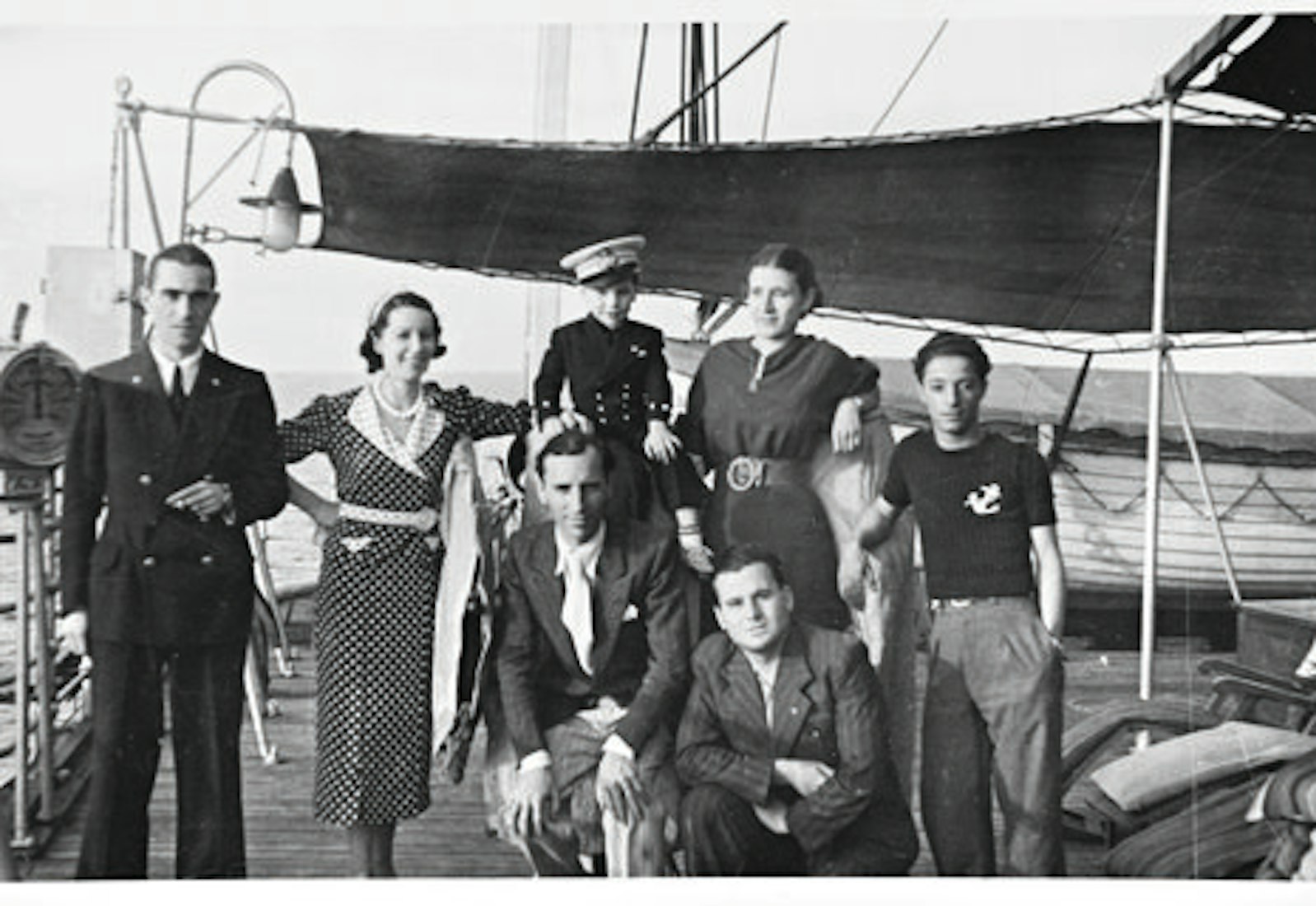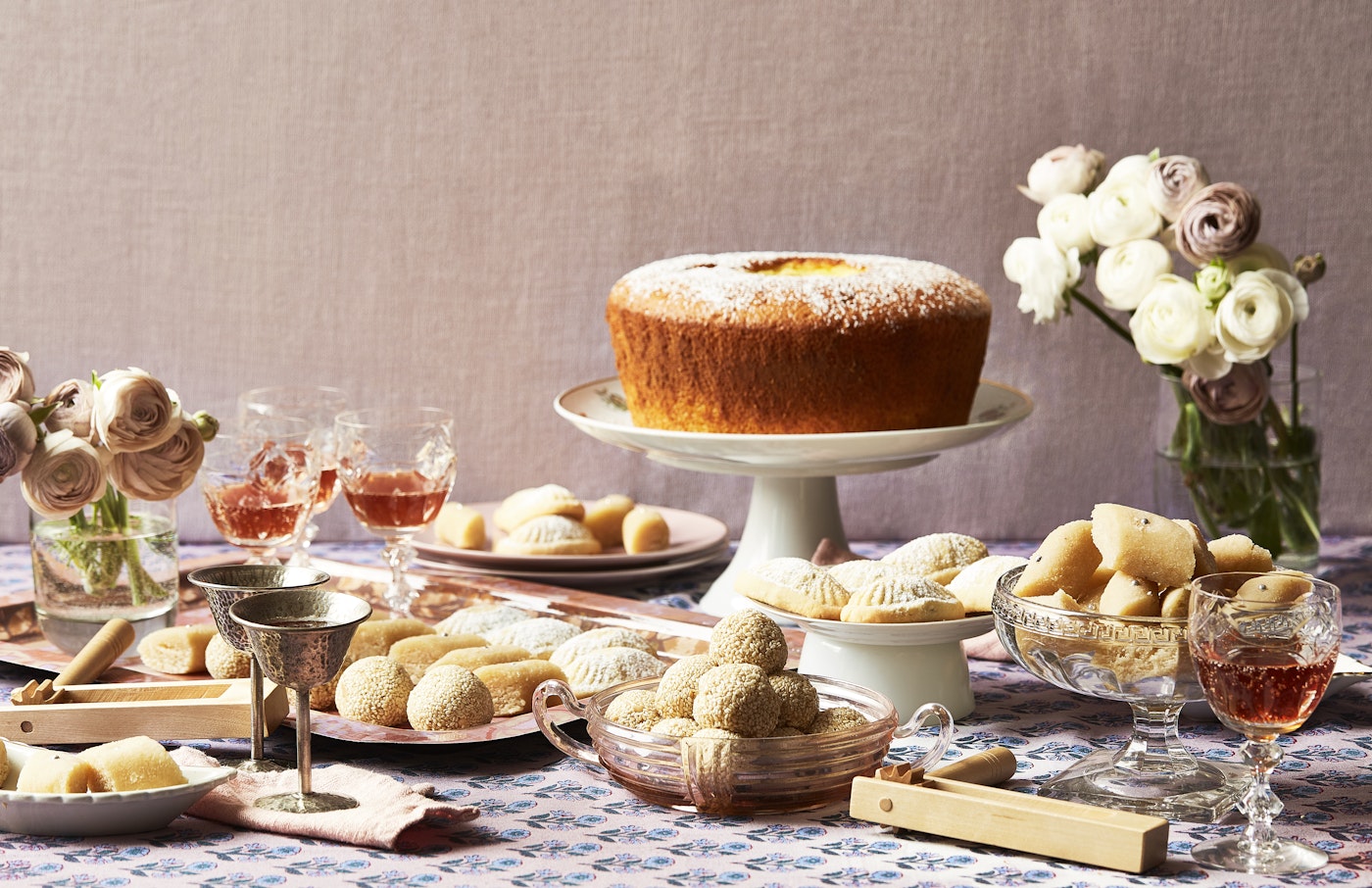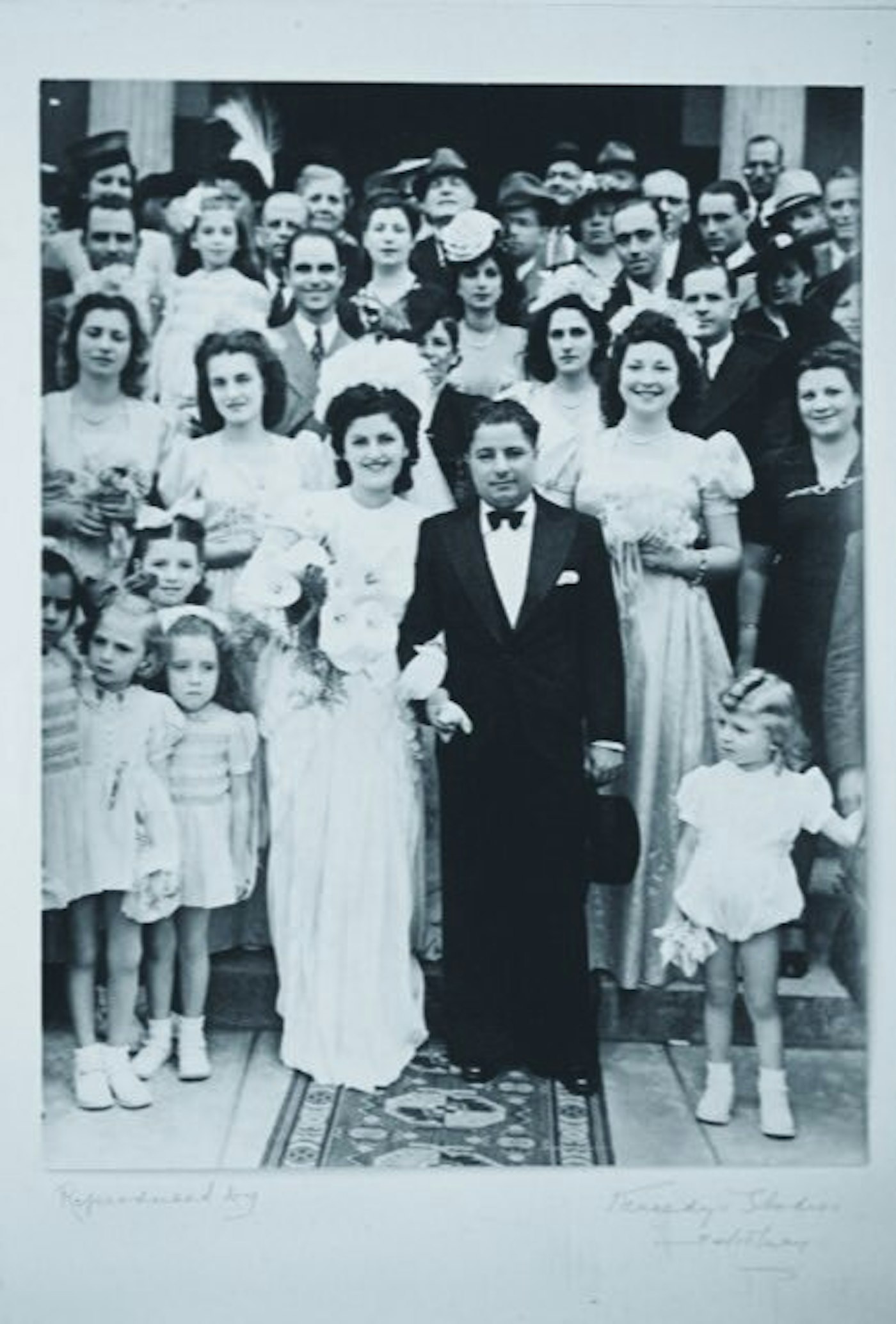Shared by Stella Hanan Cohen


Read more about Stella Hanan Cohen in “For His Bar Mitzvah, a Grandson Is Learning His Ancestors’ Recipes From Spain and Beyond” and try his recipes for stuffed grape leaves stewed with white beans and meatballs poached in tomato sauce.
Leading up to celebrations, the kitchens of Stella Hanan Cohen’s childhood community in Rhodesia were filled with “a cacophony of Spanish, and Turkish, and Greek,” says Stella. Romantic ballads called romansos were sung in Ladino, and women spoke longingly of their childhoods on the Greek island of Rhodes, where their community lived for over 400 years following the Inquisition.
Together, the women worked in assembly lines to create elaborate sweets like marzipan, almond and sesame brittle, orange sponge cake, and shortbread cookies filled with dates and walnuts. Each baker had her own specialty, never sharing her culinary secret with the other women. “My late sister and I would giggle,” says Stella, the author of “Stella's Sephardic Table: Jewish Family Recipes from the Mediterranean Island of Rhodes.” “They would never hand over their recipe... they would mix everything in with their backs towards everyone so they wouldn’t see their secret extra bit of mastic or how many drops of orange blossom water.”
Still, the day spent together in the kitchen before weddings and holidays like Purim “was like a holy communion,” she says. “That sort of magical atmosphere just seems to have evaporated. It was just laden with a spirituality and a closeness.” Together, the women would create elaborate, sweets-laden tables called “mesas d’alegria” or tables of happiness, a tradition in their community that stretches back to a time in Spain before the Inquisition.
Stella, her family, and community are known as Rhodeslis. Driven out of Spain by King Ferdinand and Queen Isabella during the Inquisition, many Jews found a home in the Ottoman Empire. “The Sultan of the Ottoman Empire at the time said to King Ferdinand, ‘Your loss is our gain,’ and invited all Jews to come and settle in the Ottoman lands,” Stella recounts. “My ancestors specifically chose Rhodes island.”
They built a Jewish community on the island, preserving traditions and recipes from Spain, while also welcoming certain Ottoman influences — empanadas from Spain were influenced by bourekas from the Ottomans and stuffed grape leaves, popular in Greece and other parts of the Eastern Meditteranean, became part of the community’s culinary repertoire.
The Jewish community as it existed in Rhodes for centuries, largely ended with Stella’s parents’ generation. Her father was born in Rhodes and her mother grew up just across the water in Marmaris, Turkey, where her family moved from Rhodes. Both of Stella’s parents found their way to Africa early in their lives in the 1930s — her mother’s family escaped rising nationalism after the fall of the Ottoman Empire, while her father came on his own for economic opportunity. Just when Stella’s father had saved enough money to bring his siblings to Rhodesia, he learned that “Germans had invaded Rhodes island and they were taken to Auschwitz,” Stella says. His family, like many of the Jews on the island, perished in the Holocast.
By the end of the war, many of the remaining members of the community of Rhodes lived in Africa. Here, like their foreparents did in Rhodes, they rebuilt their close knit community. “Whenever there was a wedding or some big occasion, when I was a little kid… almost the whole community was invited to the event,” Stella recalls.
Among the traditions that came to Rhodesia was the sweets tables for special celebrations — and behind them, was always a gaggle of women who spent the day baking together. As a child, Stella remembers her grandmother’s generation and then her mother’s carefully preparing the desserts.
As an adult, Stella has dedicated much of her time to preserving and perpetuating the traditions and recipes of her community, helping carry them forward for future generations. “I feel that every mouthful you take has a piece of history and we wouldn’t have the history without the food,” says Stella. “It’s...my quest that it’s not forgotten.”

